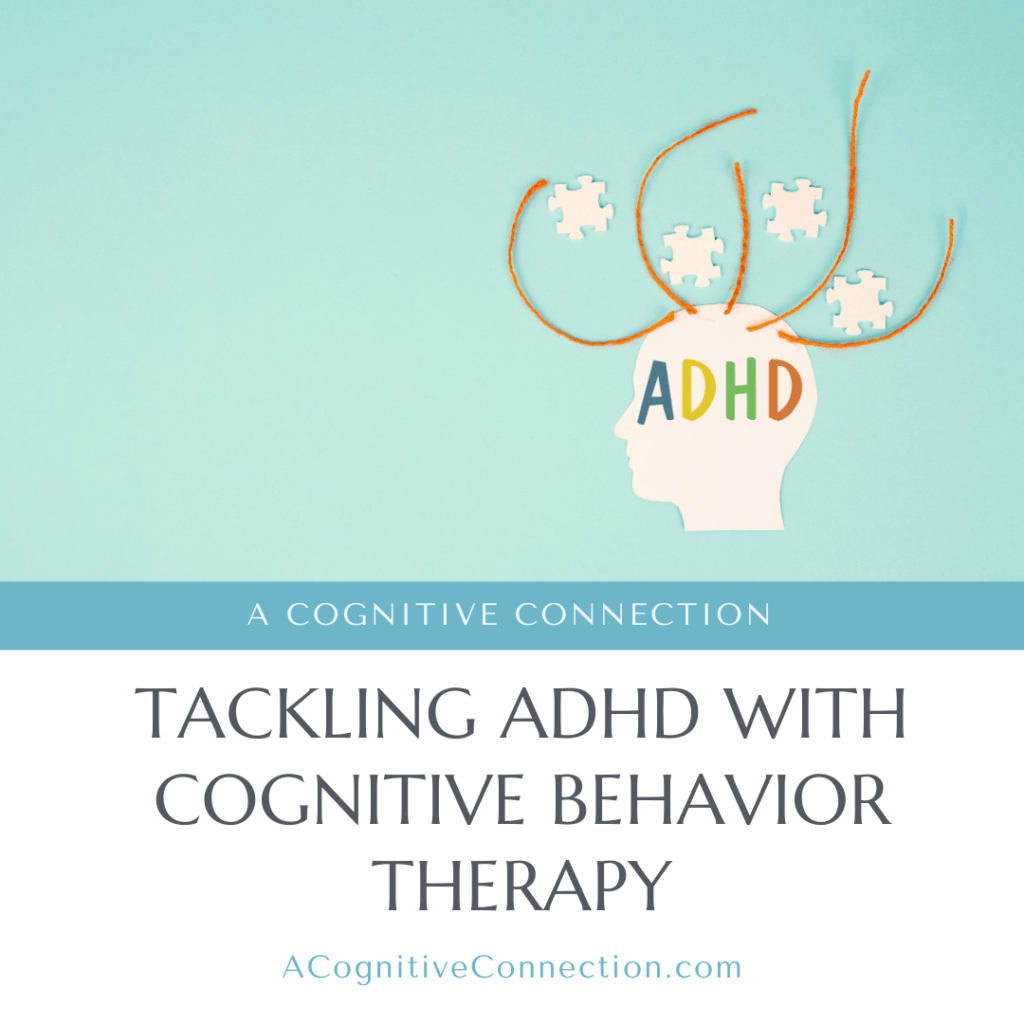Cognitive Behavioral Therapy (CBT) is an effective psychological treatment for Attention Deficit Hyperactivity Disorder (ADHD), a condition characterized by symptoms like inattention, hyperactivity, and impulsivity. CBT for ADHD focuses on modifying unhelpful thinking and behavior patterns, providing strategies for managing symptoms.
Here’s a closer look at some key CBT techniques beneficial for individuals with ADHD.

#1 Goal Setting and Task Management
One of the primary struggles for those with ADHD is organizing tasks and managing time effectively. CBT encourages setting specific, achievable goals. Techniques like breaking tasks into smaller, manageable steps and using planners or digital tools for time management can be instrumental.
#2 Mindfulness and Attention Training
Mindfulness techniques help individuals with ADHD to focus on the present moment, increasing awareness of their thoughts and actions. Mindfulness can reduce impulsivity and improve concentration.
#3 Behavioral Interventions
These involve modifying the environment to encourage desired behaviors. For instance, removing distractions from workspaces, using timers for tasks, or setting up reward systems can be effective.
#4 Cognitive Restructuring
This technique involves identifying and challenging negative thought patterns. People with ADHD might have thoughts that lead to low self-esteem or anxiety. CBT helps in recognizing these patterns and replacing them with more realistic, positive thoughts.
#5 Skill Development
ADHD can impact social skills and executive functions like organizing and planning. CBT works on developing these skills through practical exercises and role-playing scenarios.
#6 Relaxation and Stress Management
Stress can exacerbate ADHD symptoms. CBT teaches relaxation techniques like deep breathing or progressive muscle relaxation to manage stress effectively.
#7 Parent Training and Family Therapy
For children and adolescents with ADHD, involving parents in therapy can be beneficial. This might include training parents on how to provide structure, enforce rules, and use positive reinforcement.
#8 Self-Monitoring and Feedback
Encouraging individuals to monitor their behaviors and receive feedback is a vital part of CBT. This self-awareness can lead to better control over impulsive behaviors and improved decision-making.
#9 Problem-Solving Skills
CBT enhances problem-solving skills by teaching individuals to identify problems clearly, generate potential solutions, evaluate these solutions, and implement the most effective one.
#10 Acceptance and Commitment Therapy (ACT)
Though not a traditional part of CBT, ACT can help individuals with ADHD by focusing on accepting their thoughts and feelings and committing to behavior change in line with their values.
CBT for ADHD is typically a structured, short-term treatment, focusing on specific issues. It’s important to work with a therapist trained in ADHD and CBT to tailor the approach to individual needs. With consistent practice, these techniques can lead to significant improvements in daily functioning and overall quality of life for those with ADHD.
Make ADHD Your Superpower
If you’re like to make ADHD your superpower, work with our behavior coaches at a Cognitive Connection. We’ll work with you to develop a tailored plan that addresses your unique needs. Our behavior coaches are waiting for you! Book a free consultation here.


